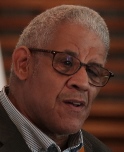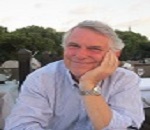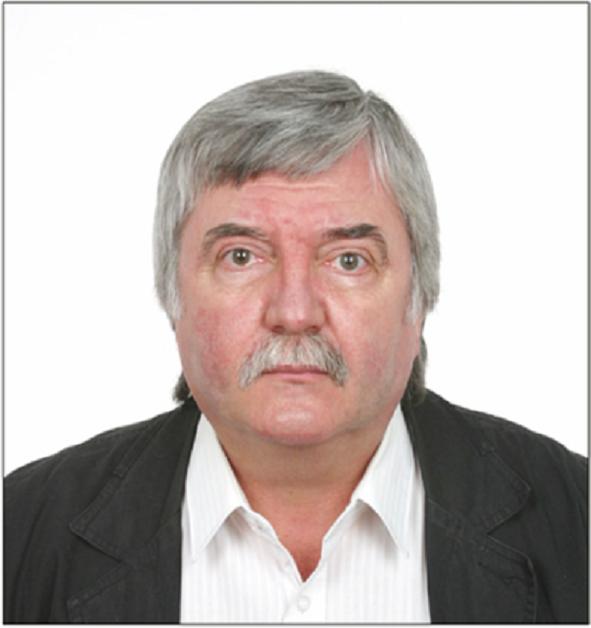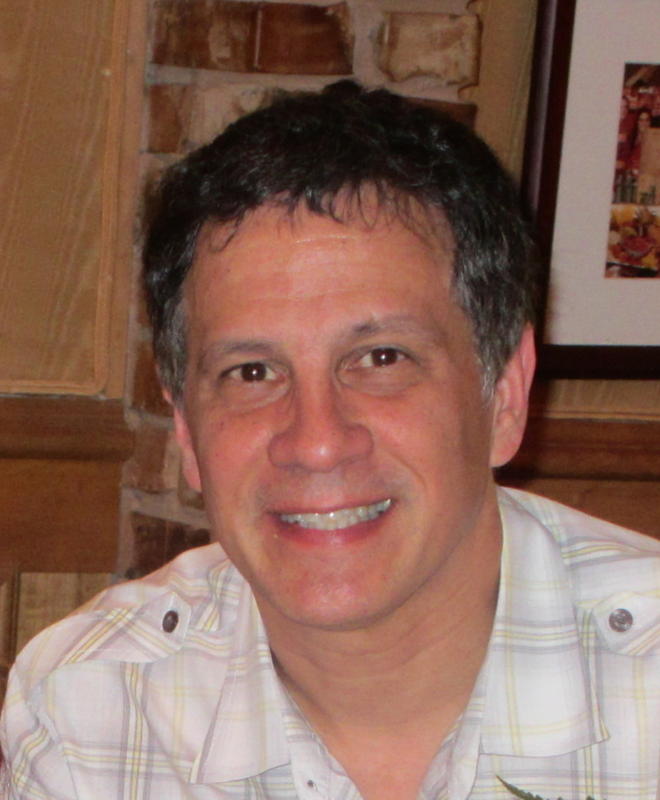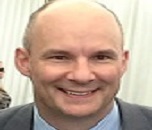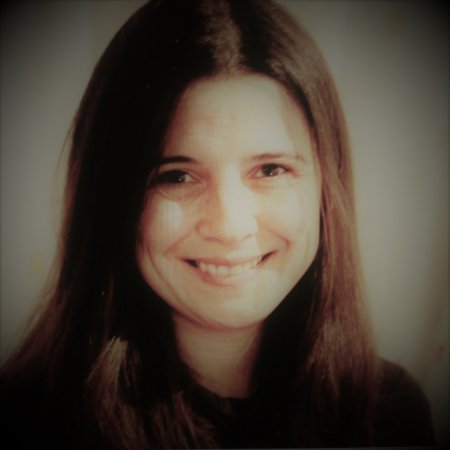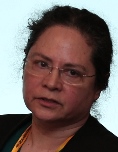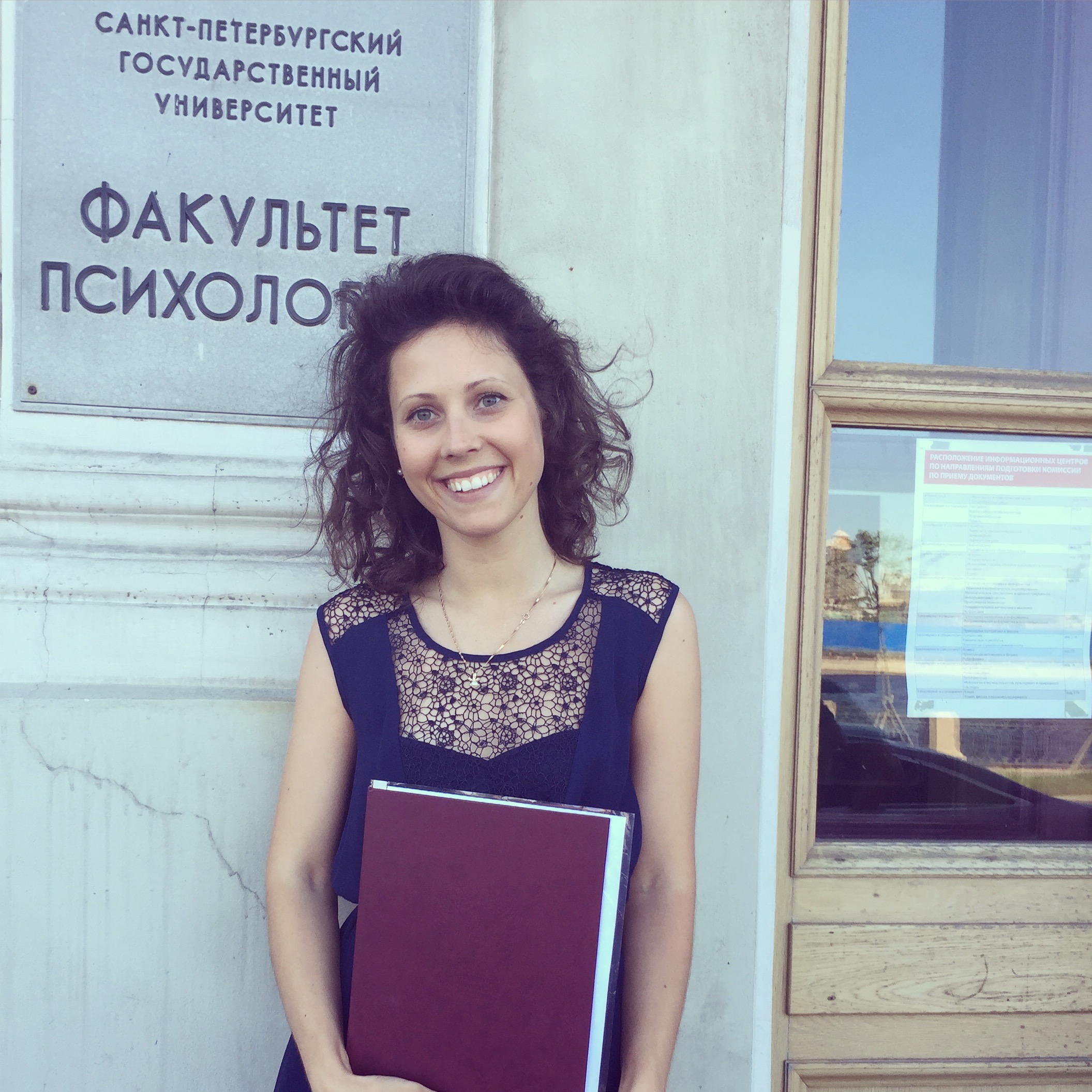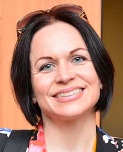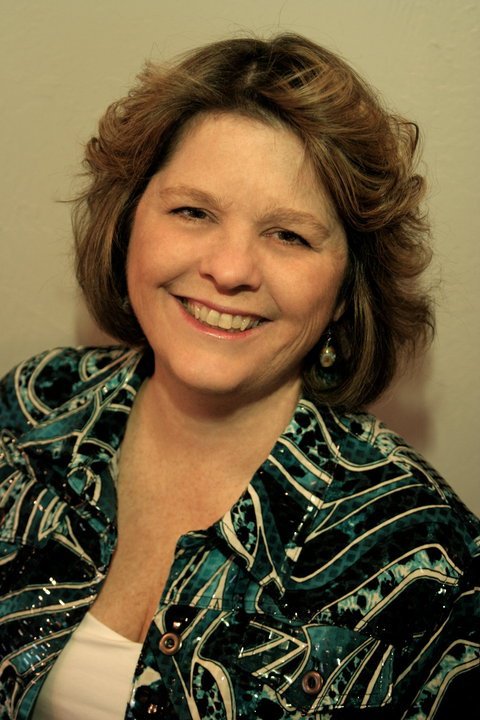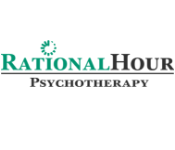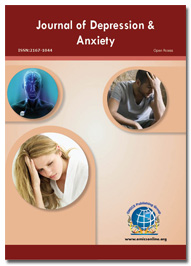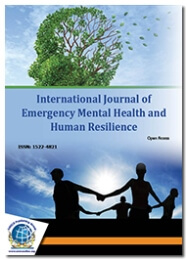Theme: A Step For New Beginning Towards Depression Therapy
Depression Congress 2019
About Depression Conference
World’s leading Scientific Event Organizer proudly welcomes all the neurologists, doctors, students and researchers to attend the World Depression Congress, during March 18-20, 2019 at Dubai, UAE.
And find a path to carve out near to perfect platform where people like get together and discuss the possibilities in the field of neurology and its aspects.
Experiencing a depression is more than simply feeling fed up and sad for few days. Everyone has a moment of feeling low throughout the day. But depression is constant for weeks are months and the real illness with the symptoms. To know such exciting topic about depression this event is going to organize in such a way to provide an exclusive platform for educators, new experts, learners to present and discuss more new innovations possibilities concerns in the depression field.
Thus to gain information we welcome you wholeheartedly to World Depression congress, during March 18-20, 2019.
Scope and Importance of Depresion Congress
Depression is an illness that affects a person, mood, body language, and no ability to function in everyday life. Although it is a very common disorder many people will not discuss it. No one knows exactly what causes the depression, and symptoms are not the same in everyone. Symptoms appear sometimes for an apparent reason or they may occur after a horrifying event. To be diagnosed with the depression, the person should decrease interest or increased sleeping or loss of energy, feeling worthless or guilty or difficulty thinking or concentrating. Because the symptoms of depression can change from day to day .it is important to talk with the people who are closest about what you’re experiencing. These conversations will be difficult. But most experts agree to help.
Depression covers a huge range of human, emotional. As a normal mood depression is everywhere in human existence, Depression Occurs in many reactions like Stress, medical and psychiatric conditions. Although the major focus of depression and affective disorders as a clinical condition.
The normality of depression causes problems for clinical practice. It is necessary to understand the nature and function of depressions as it is a normal emotion. Emotion is usually indicated by the total range of behavioral changes that fluctuate in normal life. Since the late 19th Century, mental disorders are classified by the psychological faculty
Considering most impaired: Mental radiation, thinking, and character, personality disorder, and mood affect their environment.
The Americans make illegal to segregate a person with a disability. As long as person perform the essential job.
Why Dubai?
Dubai is a developed city over the worldwide. It is the best place to start a business because it is a Business center point in the Middle East. This is a well-traveled city of diversity at the crossroad of the globe. Has transformed into a reverberate to an international metropolis. Dubai bluster a world-class infrastructure, well-maintained roads, admirable public transport, and connectivity. Dubai is a switch point trade with a region of 2.2 billion people in Africa, Europe, the middle east, Central Asia and India.
Target Audience of Depression Event
Target Audience will be from both industrial fields and academic fields which includes
-
Psychiatrist
-
Psychologist
-
Psychotherapist
-
Psychoanalysts
-
Neurologist
-
Neuropathologist
-
Neuropharmacologists
-
Neurophysiologist
-
Psychobiologist
-
Biological Psychologist
-
Neuroscience Nurse
-
Psychophysicist
-
Professors
-
Students
TRACK 1: Clinical Depression
Depression is a common and stress mood disorder. Depression exhausts our energy and hope. Overcoming depression is not easy. People who have low self-confidence, who are constantly in a depressed mood or who are already affected by stress are prone to depression. Physical changes in the body can cause mental health issues like insomnia.
Environment depression is not directly related to our brain function it not happens through families or illness. It happens by our surrounded environment situations In the course of our day to day life. Having a close relationship with a person is thought to help depression. Even with relationship with a pet have a similar effect. The Psychotherapy is a procedure done under anaesthesia, so that small electric currents are passed through the brain. And it activates the mental illness Depression can tell about lot of distress in our selves. Curing depression is finding in us and real meaning of a life.
-
Psychotherapy
-
Anxiety
-
Disorders of attention and behaviour
-
Brain training
-
Insomnia
TRACK 2: Psychiatric Syndromes
Psychotic depression is a major depressive that accompanied by psychotic symptoms plus sadness and hopelessness it is associated with depression. That means seeing, hearing, smelling or believing things that are not real, it is a symptom of serious disorder, where they’re both thoughts and physical movements slow down. The people who are going through psychotic depression they harm themselves or others. Psychotic are cause by taking alcohol and drugs. Including stimulates such as cocaine. These symptoms can be controlled by antipsychotics. They may also experience in changes in eating, sleeping etc.
-
Amnesia
-
Stendhal Syndrome
-
Megalomania
-
Agoraphobia
-
Anorexia nervosa
-
Unpredictable chronic mild test
TRACK 3: Dispossessions Oppression and Depression
Dispossession, oppression and depression are caused when the person is speechless and motionless for some extended period that may have for psychological or physiological behaviour bases. They are inability to move normally. Symptoms of catatonic depression change in appetite, trouble falling asleep, and trouble getting out of bed, thoughts of suicide or death. People who experienced hypersomnia does not come to normal functioning. They are also at risk throughout their lives and this depression is treatable. Initial treatment provides symptomatic relief. The people who are suffering from this depression should have adequate support of the people who are around them.
-
Fatigue
-
Overwhelmed
-
Hypersomnia
-
Hyper Ventilate
-
Intensely Anxious
-
Cognitive Depression
TRACK 4: Obsessive Compulsive Disorders
Obsessive compulsive disorder is the inability to find the pleasure in positive things; mood does not improve respond to positive events. Melancholic means that person overcoming phobia and in sorrowful thoughts, if anything good happens, the individual mood does not improve, not even for a short time. Depression will be constantly worse in the morning time, they may lose weight, they feel excessive guilt our results suggest that the difference in pro-inflammatory cytokine levels could reflect a biological difference between melancholic and atypical depression
-
Sleep disorders
-
Panic disorder
-
Phobia
-
Impairments
-
Visual processing
-
Overgeneralization
TRACK 5: Behavioural Depressions
Situational depression is a temporary, stress-related type of depression. It can improve after you involvement a shocking experience or series of activities. Situational depression is a type of amendment disorder. It can make it hard for patient to adjust everyday life. It’s also known as reactive depression. Symptoms of situational depression they will distressed from person to person. Situational depression can increase the weakness of stressful life events and they may get panic attack. This stress can cause trouble to your daily life. Stressful actions, both positive and negative, can cause situational depression; symptoms appear after you involved in a stressful event or series of events.They may get suicidal thoughts
-
Regular crying
-
Agitation
-
Situational depression
-
Suicidal thoughts
-
Panic attacks
-
Sleep Deprivation
-
Clozapine
TRACK 6: Anxieties and Depression
Anxiety sadness is a unhappiness or dysthymic issue that includes a few appearances, including expanded passion or weight pick up, weakness or depressive disorder or over the top rest, failing, dispositions that are forcefully open to condition, and feeling to a quick-tempered. Individuals with atypical dejection have frequently experienced dejection first at an early age, amid their adolescent years. The people who are suffering from the anxieties and depression they may loss of appetite and their behavioural will be submissiveness perinatal depression and anxiety issue are unique, however individuals with dejection regularly experience symptoms like those of a tension issue, for example, apprehension, touch, and issues drowsy ness and thinking. In any case, each confusion has its own particular causes and its own enthusiastic and behavioural symptoms
-
Cationic depression
-
Loss of appetite
-
Pathologies
-
Submissiveness
-
Impulsivity
TRACK 7: Stress Management
Suicide is the second leading cause of death in young people. When people cannot control their stress management, people feeling affected by bad emotions, see the death is the only way out. Suicide is the only permanent solution to a temporary state. Most people who are died could be helped a distinct, who may be helped to convince them seek a treatment, when the risk is high, friends and relatives should seek a professional guidance. If there is panic attack to the person or if they are trapped by the emotions, severe anxiety and agitation, if there a pervious history of family members or mental disorders.
-
Hypomanic
-
Attention deficit
-
Prognosis
-
Temper Tantrums
-
Euphoria
TRACK 8: Bipolar Depressions
Bipolar depression is a manic depression that brings severe high and low mood and changes in sleep energy and concentration, highs of mania in one extreme, to low of depression on the other. The bipolar depression lasts for days, weeks, months. Bipolar disorder is so intense that they interfere with your ability for function. Bipolar depression looks very different in different people. There are different types of bipolar depression they are mania, hypomania. Each type of bipolar depression has a unique type of symptoms. Mood swings occur quickly in bipolar depression. Bipolar depression is a lifelong depression, often destructive consequences to both the people who are suffering with depression and care givers. Physiological support for the consumers in advance, this burden may be reduced when depression therapy is done.
-
Extreme irritability
-
Chronic pain
-
Schizophrenia
-
Anorexic
-
Hypomania
TRACK 9: Psychotic Depressions
People who are suffering from depressive disorder they may get angry for no apparent reason or they spend lot of time with themselves or in bed. People will sleep in the morning and staying awake at night time and people may feel like anxiety. Individuals with other psychological instabilities, for example, schizophrenia, in that case suicide psychosis. In any case, those with maniacal melancholy for the most part have mental trips that are predictable with topics about despondency, though insane manifestations in are all the more frequently peculiar or improbable and have no conspicuous association with a disposition state for instance, thinking outsiders are tailing them for reasons unknown other than to both.
-
Hypochondria
-
Dorsolateral prefrontal cortex
-
Hallucinations
-
Suspiciousness
-
Inappropriate emotions
TRACK 10: Neurobiology of Depression
Being neurobiology depression is not just feeling down. Depression is very common. 17 present people experience depression in their overall life at certain period. Sadness has been connected to issues or awkward nature in the cerebrum as to the neurotransmitters serotonin, norepinephrine, and dopamine.it is exceptionally hard to really quantify the level of neurotransmitter in a man's cerebrum Many mental illnesses categorized as psychiatric disorders are neurobiological, Major depressive disorder is an illness with significant neurobiological consequences involving structural, functional and molecular alterations in several areas of the brain. Antidepressant pharmacotherapy is related with renovation of the causal neuropsychology
-
Physiology
-
Hippocampus
-
Macrophage
-
Neuroplasticity
-
Neuroanatomical
-
Prefrontal cortex
-
Amygdala
TRACK 11: Disruptive Mood Deregulation
Induced mood disorder is onset symptoms in the context of drug use or intoxication or withdrawal. The induced mood disorder is no longer a diagnosis conferring to the latest kind of the diagnostic statistical manual of mental depression and it changes the way patient think the way patient act caused by taking or stopping a drug. The changes in their mood for last days or weeks, mood disorder are very difficult to pinpoint. This disorder is nervous ness restless caused by taking drugs or by stopping drugs. The patients are uninterested the people usually enjoy.
This should be indicated by a consideration of an underlying illness, psychotic depression and psycho trauma
-
Echolalia
-
Inability or refused to speak
-
Negativism
-
Stereotypy
-
Wavy Flexibility
-
psychomotor
TRACK 12: Subs Syndromal Depression
Sub syndrome depression is when a person having two are more than two symptoms of depression of the same quality as in major depression is (SSD) .Subsyndromal depression has the negative effect on overall health. Many people with depression many experience with the “anxious stress” with their low concentrating because they worry so much. They are deeply scare that something bad is going to be happen or they might also lose control of themselves. In this a sudden exiting feeling of acute and disabling anxiety. They may need psychotherapy
-
Psychomotor agitation
-
Despondency
-
Reduce ability to concentrate
-
Loss of appetite
-
Pathologies
TRACK 13: Resistant Depressions
Resistant depressive disorder is also known as dysthymia .It is a long term chronic form of depression .They may also lose concentration in daily activities, hopeless, lack of efficiency, and over all feeling of in efficacy. This feeling last for years and may interfere in relationship, school, work and our daily activities. Persistent disorder symptoms are usually come and go in period of years and their concentration can change in an over time. But symptoms don’t appear more than a two months at a time. Major depression also occurs during persistent depressive disorder. Sometimes this is called double depression. All of the patients who are suffering with the dysthymic disorder had other psychiatric disorders as well , anxiety was the most frequent disorder.
-
Inherited traits
-
Biological difference
-
Poor concentration
-
Dysthymia
-
Indecisiveness
-
Chronic Stress
TRACK 14: Geriatric Depressions
Geriatric disorder is known as late Lateral phase disorder. This is characterised by a depressed or changeable mood, Anxiety, irritability, anger. This all symptoms occur one week before the menstrual cycle and last until few days after it begins. Most of the time they are severe and cripple. They keep you away from the daily activities. Antidepressants are treatment for the premenstrual dysphonic disorder. They many not sleep with this disorder Insomnia hormone therapy is also needed for this disorder.
-
Mental illness
-
Lamotrigine
-
Submissiveness
-
Impulsivity
-
Dialectical Behavioural
Depression Congress arranges to gather all around the globe 2019. Here we welcome you to the World Depression Congress from March 18-20, 2019 in Dubai, UAE
Physical disorders are compared to the normal population, more common in people who are with severe mental illness. Although this excess despondency and mortality are more due to modifiable lifestyle risk, the screening assessment of physical health aspects remains very poor, even in developed countries. Moreover specific patient’s providers, treatment and system factors act as a limit to the understanding to the management of physical diseases in people. A psychiatrist can play a major role in the improvement of the physical health of disorder patients by expanding their task from clinical psychiatric care to control and treatment of crucial physical parameters. At system level actions are not easy to realize. Especially for developing countries. In spite of at an individual level, even simple and very basic absorb and treatment actions were undertaken by the treating clinician can already improve the problem of optional medical care in this population. Practice to monitoring and treatment guidelines will result in substantial enhancement of physical health outcomes. In the future, psychiatrist help to educate and boost up people with severe mental illness to know their lifestyle including smoking, drinking unhealthy diet and lack of exercise. The adoption of the council presented in the paper across the world will contribute to a certain improvement in the medical and related psychiatric health outcomes of patients with the severe mental illness.
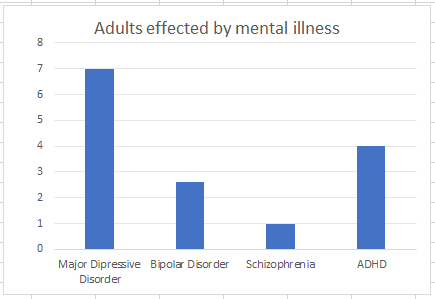
Behavioral Rehabilitation Market is in a growth phase
The universal Behavioral rehabilitation market is expected to reach USD 313.9 billion by 2025, According to a new report by grand view research Behavioral rehabilitation is predictable to growth during the period due to the presence of government actions, rising number of service providers and awareness among patients
This graph clearly shows that 40 % people are suffering from anxiety disorder and 30 % people are suffering from a mood disorder and of course now a day’s depression is most common, overcoming depression is more important. In future increasing the frequency of depression and substance of abuse cases and services provided by different hospitals for disorders is predictable to boost the market growth.
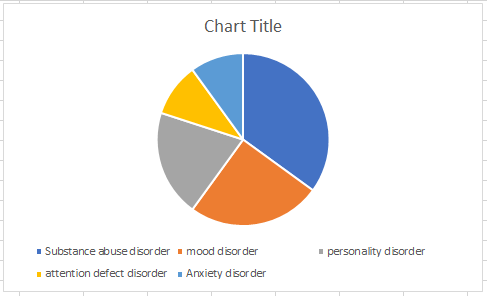
Why In Dubai?
World Depression Congress is a 2-day event learning and information about depression. In UAE the rate of illness, mental depression has doubled in last decades. UAE figure out that 4% to 5% are suffering from clinical depression. Confer to the World Health Organization, Depression may affect more than 300 billion people of all the ages and by 2020 depression will be 2nd leading disease after the cardiovascular diseases and treatment of mental disorders. In UAE the top three mental diseases are depression, anxiety and Bipolar disorder, a condition associated with mood swings are from low of depression to the high of depression. Mental health is one of our concern and all mental disease should be diagnosed. Our role is to educate people around the globe.
Middle East:
Affective Disorder Clinic of Isfahan, Iran | Hafez Psychiatry Clinic | Imam Hussein Medical Centre | Institute of Psychiatry, Tehran, Iran | Roozbeh Psychiatric Hospital | Samenolhojaj Charity Support Group for Mental Illnesses | South African Depression and Anxiety Group (SADAG) | Taqabal Kuwait | United Colours of Bipolar | We yak Qatar
USA:
American Academy of Neurology | Movement Disorders Society | Parkinson Society Canada | The International Parkinson and Movement Disorder Society | Canadian Movement Disorders Group | Bachmann-Strauss Dystonia and Parkinson Foundation | Parkinson’s Action Network, American Society of neuron rehabilitation | Canadian Stroke Consortium | Association of Counselling Psychologists | American Psychological Association | Association for Psychological Science | Brain and Spine Foundation | American Neuropsychiatric Association | Association of Psychology and Psychiatry for Adults and Children | Alzheimer’s Association | American Academy of Sleep Medicine | American Parkinson’s Disease Association | Parkinson’s Disease Foundation | Stroke Association | American Association of Neurological Surgeons | American Society for Stereotactic and Functional Neurosurgery | Neuropathy Association & Nevus Outreach | Brain Aneurysm Foundation and Brain Injury Association of America | Brain Injury Resource Centre & Brain Trauma Foundation
Europe:
European Psychiatric Association | Federation of European Neuroscience Societies | European Sleep Research Society | Society for Neuroscience | British Neuroscience Association | Belgian Society for Neuroscience | Brain Research Society of Finland | Croatian Society for Neuroscience | Danish Society for Neuroscience | Dutch Neuron-federation | Georgian Neuroscience Association |Spanish Psychological Association | Swedish Psychological Association| Bulgarian Society of Neurology | Spanish Society of Neurology | British Psychological Association | European Huntington Association| European Neurological Societies | UK Parkinson’s Action Network | European Neurological Society |European Parkinson’s Disease Association | Danish Movement Disorder Society| Italian Society for the study of Parkinson Disease
Asia-Pacific:
Psychiatrists of Association of Nepal | Philippine Psychiatric Association Portuguese | Romanian Psychiatric Association | Russian Society of Psychiatrists | Neurological Society of India | Movement Disorder Society of Australia
Dubai
Illuminations | The lighthouse center | The national UAE health German neuron science center | Dubai Healthcare City priory| Dubai Saudi German hospital
Causes of Depression
Depression is a sustained mental state that leaves people feeling so sad and in despair that it affects their daily life. Feeling sad or down from time to time is a completely normal part of life, but when that sadness is so extreme or long-lasting that it impacts your life as well as the lives of those around you, you might have depression. Symptoms of depression go beyond mere sadness. They often include feelings of hopelessness, guilt, pessimism and other negative thoughts that are so severe that they affect the person's interaction with others. People with depression also shun activities that were once interesting or pleasurable to them, such as hobbies or sex. They may have fatigue, lack of energy and oversleep. Or, they might have insomnia and be anxious and irritable. The symptoms may even manifest themselves physically in the form of aches, pains, cramps or digestive problems. When the symptoms last for at least two weeks and are obvious but not severe, this is usually considered minor depression. If the depression progresses to the point where it's disabling and affecting the person’s ability to function normally, it's considered major depressive disorder. There are other forms of depression as well, including postpartum depression, seasonal affective disorder and depression related to dysthymic disorder or bipolar disorder. Everyone is at risk for depression. It affects about 25 million Americans, or 5 to 8 percent of the population. But it does occur 70 percent more often in women than in men. The reasons why are complex, but it's probably due to a combination of family history, issues in a person’s life and biological or psychological factors.
Conference Highlights
- Clinical Depression
- Psychiatric Syndromes
- Dispossessions Oppression and Depression
- Obsessive Compulsive Disorders
- Behavioral Depressions
- Anxieties and Depression
- Stress Management
- Bipolar Depressions
- Psychotic Depressions
- Neurology of Depression
- Disruptive Mood Deregulation
- Subs Syndrome Depression
- Resistant Depressions
- Geriatric Depressions
To share your views and research, please click here to register for the Conference.
To Collaborate Scientific Professionals around the World
| Conference Date | March 18-19, 2019 | ||
| Sponsors & Exhibitors |
|
||
| Speaker Opportunity Closed | Day 1 | Day 2 | |
| Poster Opportunity Closed | Click Here to View | ||
Useful Links
Special Issues
All accepted abstracts will be published in respective Our International Journals.
- Journal of Depression and Anxiety
- Journal of Psychology & Psychotherapy
- International Journal of Emergency Mental Health and Human Resilience
Abstracts will be provided with Digital Object Identifier by








